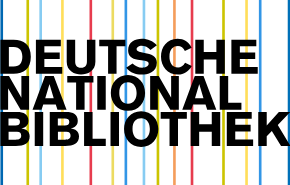THE STRATEGY FOR ENHANCING POLITICAL CULTURE AMONG CIVIL SERVANTS IN UZBEKISTAN
DOI:
https://doi.org/10.55640/Keywords:
political culture, civil servant, governance, strategy, democratic values, public administration, political awareness, reform, leadership, ethics.Abstract
The thesis is devoted to studying the strategy for developing the political culture of civil servants in the context of Uzbekistan. It analyzes the essence of political culture, its significance in public administration, and the main directions for its improvement. The research presents proposals aimed at enhancing the political awareness, responsibility, and commitment of civil servants to democratic values.
References
1. Almond, G. A., & Verba, S. (1963). The Civic Culture: Political Attitudes and Democracy in Five Nations. Princeton University Press.
2. Easton, D. (1965). A Systems Analysis of Political Life. New York: Wiley.
3. Dahl, R. A. (1971). Polyarchy: Participation and Opposition. Yale University Press.
4. Huntington, S. P. (1991). The Third Wave: Democratization in the Late Twentieth Century. University of Oklahoma Press.
5. Inglehart, R., & Welzel, C. (2005). Modernization, Cultural Change, and Democracy: The Human Development Sequence. Cambridge University Press.
6. OECD (2021). Public Integrity in Central Asia: Strengthening Ethics and Accountability in Public Administration. Paris: OECD Publishing.
7. United Nations Development Programme (UNDP). (2020). Governance and Public Administration Reform: Global Experiences and Lessons Learned. New York: UNDP.
8. Peters, B. G., & Pierre, J. (2016). The Handbook of Public Administration. Sage Publications.
9. Rosenbloom, D. H., Kravchuk, R. S., & Clerkin, R. M. (2015). Public Administration: Understanding Management, Politics, and Law in the Public Sector. McGraw-Hill Education.
10. Fukuyama, F. (2014). Political Order and Political Decay: From the Industrial Revolution to the Globalization of Democracy. Farrar, Straus and Giroux.
Downloads
Published
Versions
- 2025-11-06 (2)
- 2025-11-05 (1)
Issue
Section
License

This work is licensed under a Creative Commons Attribution 4.0 International License.
Authors retain the copyright of their manuscripts, and all Open Access articles are disseminated under the terms of the Creative Commons Attribution License 4.0 (CC-BY), which licenses unrestricted use, distribution, and reproduction in any medium, provided that the original work is appropriately cited. The use of general descriptive names, trade names, trademarks, and so forth in this publication, even if not specifically identified, does not imply that these names are not protected by the relevant laws and regulations.







